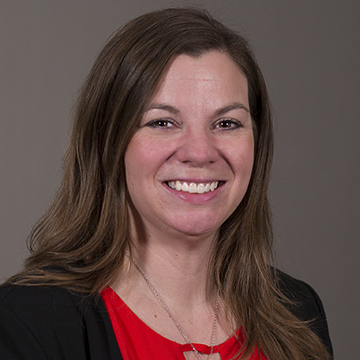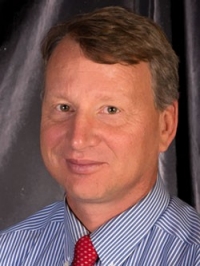Explore Jobs
Find Specific Jobs
Explore Careers
Explore Professions
Best Companies
Explore Companies
Job outlook for tax advisors in the United States
Tax Advisor job and salary trends over time
Tax Advisor jobs over time
Tax Advisor job growth rate over time
| Year | # Of Jobs | % Of Population |
|---|---|---|
| 2021 | 58,135 | 0.02% |
| 2020 | 43,746 | 0.01% |
| 2019 | 46,591 | 0.01% |
| 2018 | 47,583 | 0.01% |
| 2017 | 48,023 | 0.01% |
Average tax advisor salary over time
Tax Advisor salary by year
| Year | Avg. Salary | Hourly Rate | % Change |
|---|---|---|---|
| 2025 | $58,252 | $28.01 | +2.8% |
| 2024 | $56,647 | $27.23 | +9.4% |
| 2023 | $51,795 | $24.90 | +1.7% |
| 2022 | $50,927 | $24.48 | +6.0% |
| 2021 | $48,061 | $23.11 | +0.3% |
Tax Advisor jobs by state

Most common states for tax advisors
| Rank | State | Population | # of Jobs | Employment/ 1000ppl |
|---|---|---|---|---|
| 1 | District of Columbia | 693,972 | 302 | 44% |
| 2 | Rhode Island | 1,059,639 | 201 | 19% |
| 3 | Minnesota | 5,576,606 | 985 | 18% |
| 4 | Connecticut | 3,588,184 | 640 | 18% |
| 5 | Utah | 3,101,833 | 543 | 18% |
| 6 | North Dakota | 755,393 | 131 | 17% |
| 7 | Wyoming | 579,315 | 96 | 17% |
| 8 | Delaware | 961,939 | 152 | 16% |
| 9 | Wisconsin | 5,795,483 | 873 | 15% |
| 10 | Illinois | 12,802,023 | 1,738 | 14% |
| 11 | Colorado | 5,607,154 | 782 | 14% |
| 12 | Massachusetts | 6,859,819 | 922 | 13% |
| 13 | Missouri | 6,113,532 | 804 | 13% |
| 14 | Iowa | 3,145,711 | 414 | 13% |
| 15 | New Hampshire | 1,342,795 | 181 | 13% |
| 16 | Virginia | 8,470,020 | 1,053 | 12% |
| 17 | Maryland | 6,052,177 | 734 | 12% |
| 18 | Alaska | 739,795 | 90 | 12% |
| 19 | Oregon | 4,142,776 | 450 | 11% |
| 20 | Vermont | 623,657 | 67 | 11% |
Most common cities for tax advisors
| Rank | City | # of Jobs | Employment/ 1000ppl | Avg. Salary |
|---|---|---|---|---|
| 1 | Englewood | 2 | 6% | $57,088 |
| 2 | Southfield | 3 | 4% | $60,470 |
| 3 | Westland | 3 | 4% | $59,957 |
| 4 | Allen Park | 1 | 4% | $60,189 |
| 5 | Andover | 1 | 3% | $80,339 |
| 6 | Apple Valley | 1 | 2% | $58,481 |
| 7 | Saint Paul | 3 | 1% | $58,850 |
| 8 | Plano | 2 | 1% | $59,812 |
| 9 | Tampa | 2 | 1% | $55,999 |
| 10 | Ann Arbor | 1 | 1% | $59,322 |
| 11 | Chicago | 4 | 0% | $45,615 |
| 12 | Austin | 2 | 0% | $60,480 |
| 13 | Dallas | 2 | 0% | $60,016 |
| 14 | Houston | 2 | 0% | $59,582 |
| 15 | Indianapolis | 2 | 0% | $43,643 |
| 16 | Los Angeles | 2 | 0% | $67,505 |
| 17 | Minneapolis | 2 | 0% | $58,708 |
| 18 | San Francisco | 2 | 0% | $84,256 |
| 19 | Seattle | 2 | 0% | $83,872 |
Tax Advisor job outlook: Expert opinions
Our panel of tax advisor experts
Gonzaga University
The University of Texas at Arlington

Indiana University Northwest

University of Wisconsin - La Crosse
Kansas Wesleyan University

University of Oklahoma

Virginia Commonwealth University
Keiser University
Berea College

University of New Mexico
What general advice would you give to a Tax Advisor?
Andrew Brajcich: Tax technical skills will always be important. But now those are just table stakes. To be a value-adding advisor to your client or team, you need technological skills including some coding and database management skills. And it has to be more than Excel. I don’t care if it’s exposure to Python or SQL or Tableau or Alteryx or something else. You need to understand how technologies work because they will change but the fundamental concepts behind the tools remain.
What Tax Advisor skills would you recommend for someone trying to advance their career?
Andrew Brajcich: Ask yourself, “What can I do to make the job of the person above me easier.” That should be your guiding light. If you approach every workday with that, you’ll soon find yourself on better clients, working with better teams, and moving up in the organization.
What will help Tax Advisors increase their earning potential?
Andrew Brajcich: 1) Be open to anything. You might be surprised at what you discover. 2) Be nimble. Most career paths are a zig zag. Few are direct. 3) Learn how to leverage AI without being over reliant. In tax, it has a long ways to go so hop on for the ride but double check every aspect of the work product. You can learn with it. And of course get permission before using any tools.
What general advice would you give to a Tax Advisor?
Kenton Klaus: As noted above, the best way to maximize salary potential is to quickly narrow down the areas of tax where the graduate student can separate themselves from other candidates. If the graduate student did his or her homework before finishing their graduate studies, they will be able to demonstrate to employers that they have a deeper knowledge of the technical areas in which they have an interest, along with the applicable technology.
What Tax Advisor skills would you recommend for someone trying to advance their career?
Kenton Klaus: Taxation is a very broad discipline, so it's important for a new tax professional to understand all the opportunities available for them to use their graduate degree. In some cases, graduate students have already been in the workforce, and have specific plans to return to a certain area of practice. However, many students have not explored the available opportunities to see which line up best with their interests and skills. I encourage graduate students to explore the market before they graduate, reach out to alumni who work in different areas of the tax profession, and speak with the professors for the courses that most interested them.
What will help Tax Advisors increase their earning potential?
Kenton Klaus: Taxation is a very broad discipline, so it's important for a new tax professional to understand all the opportunities available for them to use their graduate degree. In some cases, graduate students have already been in the workforce, and have specific plans to return to a certain area of practice. However, many students have not explored the available opportunities to see which line up best with their interests and skills. I encourage graduate students to explore the market before they graduate, reach out to alumni who work in different areas of the tax profession, and speak with the professors for the courses that most interested them.
What general advice would you give to a Tax Advisor?
Dr. J. Klaus Ph.D., CPA (KY): Choosing a career in accounting today is particularly appealing due to the strong demand for skilled professionals in the field. Accounting stands out for its stability, offering a secure and reliable career path. The diversity within the profession, including areas like tax accounting and financial analysis, provides individuals with flexibility to align their work with their specific interests. With a global relevance, accountants are in high demand internationally. The current technological advancements have streamlined routine tasks, allowing professionals to focus on more strategic aspects of their roles. Pursuing well-regarded certifications, such as the CPA designation, ensures continuous learning and opens avenues for career advancement. Additionally, the flexibility for remote work and potential for entrepreneurial ventures make accounting a highly sought-after and promising choice in response to the prevalent demand for skilled professionals.

Jaclyn Barkow
Clinical Assistant Professor of AccountingIndiana University Northwest
Accounting Department
What soft skills should all Tax Advisors possess?
Jaclyn Barkow: The most valuable soft skill is communication. Being able to communicate effectively with colleagues, superiors, and clients. Communication comes in the form of written and oral. Effective communication also entails knowing when to listen, when to respond, and asking questions. Young accountants will also not know everything upon entering the workplace; asking questions is important for the learning process.

What are the biggest trends we'll see in the Tax Advisor job market given the pandemic?
Vivek Pande: Long-term chronic unemployment among certain demographics especially older workers unfortunately. I think graduating college students with business degrees will still get jobs but they may have to look harder. Certain sectors are obviously continuing to do well such as e-commerce and tech.
What Tax Advisor skills would you recommend for someone trying to advance their career?
Vivek Pande: There are two skills all business students and graduates can always work on. The first is computer skills - basic knowledge of, for example, SQL or advanced Excel wizardry is always useful for career advancement. Secondly, students interested in global business can always learn/improve foreign language skills. Spanish is not even a "foreign" language anymore and some basic knowledge of, for example, Arabic or Mandarin can obviously be very useful.
What general advice would you give to a Tax Advisor?
Vivek Pande: The same advice as always - work hard, shut up, pay your dues, be useful, be reliable, then move on up!
Dr. Hassan Niazi
Assistant Professor of AccountingKansas Wesleyan University
Department of Business and Accounting
Will there be an enduring impact of the coronavirus pandemic on Tax Advisors?
Dr. Hassan Niazi: Unfortunately, the obstacles this pandemic has created in learning experiences of graduates are a matter of concern for both graduates and their prospective employers. Graduates will have to resort more to experiential learning at their workplace to meet the deficiencies in their learning caused by the pandemic. With that said, the batch of 2020 is definitely a different class of graduates and has the potential of becoming the most self-initiative, creative, and collaborative leaders of the century.
What type of skills will young Tax Advisors need?
Dr. Hassan Niazi: The post-pandemic workforce is likely to have a more remote, collaborative, and perhaps work-from-home type of environment. Hence, this would require deeper understanding of the IT tools at their disposal with emphasis on their limitations and security aspects. To complement these hard skills, graduates will also need effective communication, problem-solving, and crisis management skills to overcome some of the inherent IT limitations.
What experience really stands out on Tax Advisor resumes?
Dr. Hassan Niazi: Although each employer values experiences differently, some experiences on a resume may stand out more than others. Experiences that show competence with different types of technologies, especially those pertaining to remote, flexible, and collaborative work environments, are essential. Additionally, experiences as a team lead and collaborating with remote teams or providing them training are also very important. These experiences do not necessarily have to be in a workplace setting and can be acquired in an academic or even personal setting. However, relevant prior work experience is the most valued part of a resume as it provides assurance about prior understanding and familiarity with professional workplace environment and its demands, policies, and expectations.

What are the biggest trends we'll see in the Tax Advisor job market given the pandemic?
Joseph Dulin: Virtual interviews and internships. Hiring remains strong.
What Tax Advisor skills would you recommend for someone trying to advance their career?
Joseph Dulin: I think that a gap year is great if you have the financial means. We have had some students do this. One hiked the Appalachian Trail and another the California trail. Some interview and find good jobs in accounting when they are done exploring. Some leave accounting by leveraging the degree into other careers such as teaching. Another decided to use his financial skills to serve his ministry. The thing about an accounting education is that it does not lose its value over time as the achievement of an accounting degree says a lot about a person's ability and potential. If you can through an accounting program, especially a top competitive program such as the one we have at OU, you are very talented and will be in demand. A year away. Not really a big deal.

What type of skills will young Tax Advisors need?
Lindsay Andiola Ph.D.: The accounting field has been rapidly evolving over the last 5 years. The pandemic really hasn't changed anything about the skills needed of these graduates. Most importantly, accounting graduates entering the workforce need to have not only the technical knowledge of accounting but also the ability to communicate well (both written and verbally). They need to have analytical and critical thinking skills, and comfort and willingness to use technology. The accounting field is changing, and in my opinion, accounting students have an amazing opportunity to be part of that change and innovate the profession. Companies and firms looking to hire accounting graduates are looking for those who are interested in driving change in the profession.
Dr. S. Diann Ferrell
Master of Accountancy Program ChairKeiser University
Accounting Department
Will there be an enduring impact of the coronavirus pandemic on Tax Advisors?
Dr. S. Diann Ferrell: Yes, there will be a lasting impact on graduates because of the pandemic. There is a lot of unemployment, and nothing is normal at this time.
Dr. Richard Hale
Associate Professor of AccountingBerea College
Accounting Department
What are the biggest trends we'll see in the Tax Advisor job market given the pandemic?
Dr. Richard Hale: The most significant trends in the job market in Accounting are less likely to be affected by the pandemic.
Accountants' skills remain the same...taxes, payroll, financial reviews, management support, etc., for all companies.
The benefits brought to an accountant's clients are in even greater demand due to the issues brought about by the pandemic.
Some issues will be more challenging to deal with in these times. For instance, if an employee works from home and is in a different community than the headquarters, what are the tax and payroll implications? Will sales taxes now have to be collected in that community or state? These are among the many questions that expanding work from home to more employees has created.
Accordingly, I do not foresee a downturn in the accounting industry.
What technology do you think will become more important and prevalent for Tax Advisors in the next 3-5 years?
Richard Brody Ph.D.: Technology has been forced to address the increased demand for remote services. We heard and saw many examples of Zoom-bombing when this all started. Providers were not prepared for the massive increase in the use of their services, and while the pandemic has created strong business opportunities for these companies, weaknesses were exposed and needed to be corrected immediately.
In addition, remote servicing of clients has increased the use of cloud-based technology, and this is likely to continue. This would include cloud-based document management and the use of client portals. Virtual environments raise additional concerns with respect to the security of the technology being used.